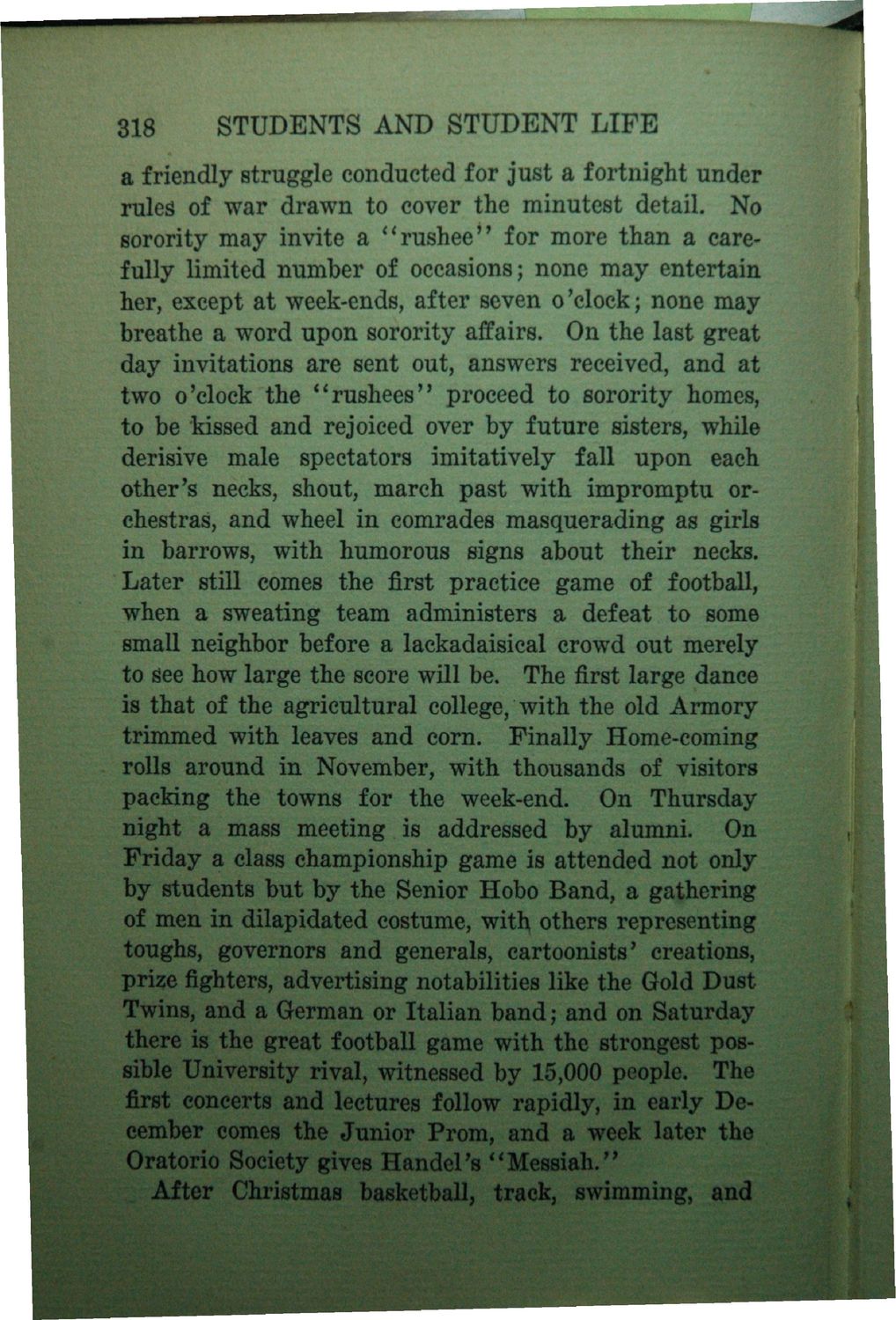| |
| |
Caption: Book - History of the University (Nevins)
This is a reduced-resolution page image for fast online browsing.

EXTRACTED TEXT FROM PAGE:
318 STUDENTS AND STUDENT LIFE a friendly struggle conducted for just a fortnight under rules of war drawn to cover the minutest detail. No sorority may invite a "rushee" for more than a carefully limited number of occasions * none may entertain , her, except at week-ends, after seven o 'clock; none may breathe a word upon sorority affairs. On the last great day invitations are sent out, answers received, and at two o'clock the "rushees" proceed to sorority homes, to be kissed and rejoiced over by future sisters, while derisive male spectators imitatively fall upon each other's necks, shout, march past with impromptu orchestras, and wheel in comrades masquerading as girls in barrows, with humorous signs about their necks. Later still comes the first practice game of football, when a sweating team administers a defeat to some small neighbor before a lackadaisical crowd out merely to see how large the score will be. The first large dance is that of the agricultural college, with the old Armory trimmed with leaves and corn. Finally Home-coming rolls around in November, with thousands of visitors packing the towns for the week-end. On Thursday night a mass meeting is addressed by alumni. On Friday a class championship game is attended not only by students but by the Senior Hobo Band, a gathering of men in dilapidated costume, with, others representing toughs, governors and generals, cartoonists' creations, prize fighters, advertising notabilities like the Gold Dust Twins, and a German or Italian band; and on Saturday there is the great football game with the strongest possible University rival, witnessed by 15,000 people. The first concerts and lectures follow rapidly, in early December comes the Junior Prom, and a week later the Oratorio Society gives Handel's "Messiah." After Christmas basketball, track, swimming, and
| |